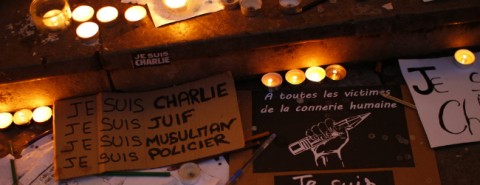Standing with Ahmed
The January 7 attack at Charlie Hebdo’s office targeted satirists who lampooned Islam, while the January 9 attack at a kosher grocery store targeted Jews. The three-day death toll in Paris also included police officers and a maintenance worker. These individuals and their loved ones are the primary victims of these horrifying and indefensible acts.
This is also a major setback, however, for French Muslims. In the aftermath of the shootings, mosques have been vandalized with gunfire, bombs, and even pig heads. Meanwhile, some commentators associate the attacks with Islam generally, or suggest that Muslims have been too slow or too timid in their condemnation. In reality, the murders were swiftly denounced by a wide spectrum of Muslim leaders—everyone from the Arab League to the French Council of the Muslim Faith and the Union of Islamic Organizations of France.
Those who believe Islam is inherently violent may simply dismiss such statements as insincere. But this fails to take seriously the position French Muslims are in. They have much to lose from violence done in Islam’s name. Juan Cole, an American commentator on the Mideast, writes that violent extremists hope to get non-Muslim French “to be beastly to ethnic Muslims” so they can create “a common political identity around grievance against discrimination.” From the extremists’ perspective, a backlash that targets all Muslims isn’t an unfortunate by-product; it’s part of the point. It plays right into their dualistic worldview: Islam versus secularism, purity versus freedom, East versus West.






